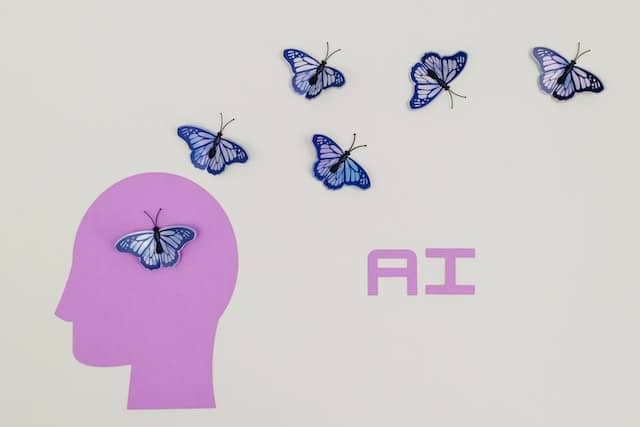In today’s digital landscape, mobile app development has become crucial for businesses aiming to effectively engage with their target audience. With the rapid advancements in artificial intelligence (AI) technology, developers now have access to a wide range of AI tools that can streamline the app development process, enhance user experiences, and provide innovative features. This article will explore the top AI tools transforming mobile app development and enabling developers to create cutting-edge applications.
Introduction to AI Tools for Mobile App Development
AI tools have revolutionized mobile app development, empowering developers to create intelligent and intuitive applications. These tools leverage AI algorithms and machine learning techniques to enable functionalities such as natural language processing, image recognition, voice recognition, and predictive analytics.
Natural Language Processing (NLP) Tools
Sentiment Analysis
Sentiment analysis tools utilize AI to analyze and understand the sentiment behind user-generated content. By employing machine learning models, these tools can determine whether a user’s sentiment is positive, negative, or neutral. Mobile apps can leverage sentiment analysis to gauge customer feedback, improve user experiences, and enhance brand reputation.
Text-to-Speech Conversion
Text-to-speech conversion tools employ AI algorithms to convert written text into spoken words. These tools enable mobile apps to provide audio-based content, accessibility features for visually impaired users, and interactive voice responses. By integrating text-to-speech capabilities, apps can offer a more inclusive and engaging user experience.
Language Translation
Language translation tools leverage AI-powered algorithms to facilitate real-time language translation within mobile apps. These tools break down language barriers, enabling users from different linguistic backgrounds to communicate and understand each other. Language translation tools are particularly useful for international businesses and travel-related applications.

Image Recognition and Processing Tools
Object Detection
Object detection tools use AI to identify and locate specific objects within images or videos. Mobile apps can offer functionalities like augmented reality (AR), product recognition, and visual search by integrating object detection capabilities. These tools enhance user experiences by enabling interactive and immersive features.
Facial Recognition
Facial recognition tools employ AI algorithms to recognize and verify human faces. Mobile apps can utilize facial recognition for various purposes, including biometric authentication, personalized user experiences, and social media filters. Facial recognition adds an extra layer of security and personalization to mobile applications.
Image Classification
Image classification tools use AI to classify and categorize images based on their content. By integrating image classification capabilities, mobile apps can automate processes like content moderation, visual search, and intelligent recommendations. These tools enhance app efficiency and provide tailored experiences to users.
Voice Recognition and Virtual Assistant Tools
Speech-to-Text Conversion
Speech-to-text conversion tools leverage AI algorithms to convert spoken language into written text. Mobile apps can integrate speech-to-text capabilities to enable voice-based input, transcription services, and voice search functionalities. By incorporating these tools, apps become more accessible and user-friendly.
Voice Command Integration
Voice command integration tools allow mobile apps to respond to voice commands and perform actions based on user instructions. These tools enable hands-free interactions, smart home integrations, and voice-controlled navigation. Voice command integration enhances user convenience and fosters a seamless app experience.
Chatbots and Virtual Assistants
AI-powered chatbots and virtual assistants provide automated responses and interactive conversational experiences within mobile apps. These tools can handle customer queries, provide recommendations, and assist users with various tasks. Chatbots and virtual assistants streamline customer support and improve user engagement.

Predictive Analytics Tools
User Behavior Analysis
User behavior analysis tools utilize AI algorithms to analyze user interactions within mobile apps. By tracking user behavior patterns, these tools provide valuable insights into user preferences, enabling app developers to personalize user experiences, optimize app design, and increase user retention.
Personalized Recommendations
Personalized recommendation tools leverage AI to suggest relevant content, products, or services to individual users based on their preferences and behaviors. Mobile apps can employ these tools to enhance user engagement, drive conversions, and deliver tailored experiences that cater to each user’s unique interests.
Predictive Modeling
Predictive modeling tools use AI to forecast future trends, behaviors, or outcomes based on historical data. Mobile apps can leverage predictive modeling to make data-driven decisions, optimize marketing campaigns, and improve business strategies. By incorporating these tools, apps can stay ahead of the competition and provide enhanced user experiences.
Conclusion
In conclusion, the field of mobile app development has greatly benefited from the advancements in AI technology. The top AI tools mentioned in this article, including natural language processing tools, image recognition and processing tools, voice recognition and virtual assistant tools, and predictive analytics tools, are transforming how mobile apps are created and experienced. By leveraging these tools, developers can enhance user engagement, improve app functionality, and deliver innovative and personalized user experiences.














Leave a Reply